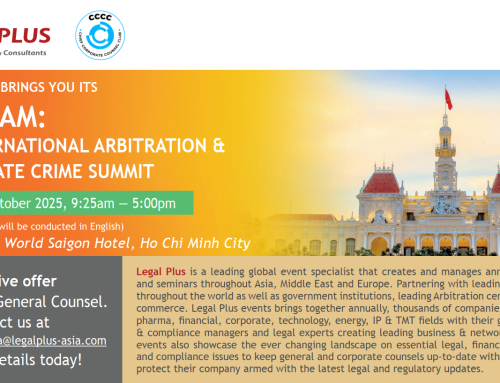Attending a legal counsel forum can be a transformative experience for legal professionals. These forums provide opportunities to learn about the latest industry trends, develop new skills, and build valuable networks. However, to truly maximise the benefits, you need a strategic approach before, during, and after the event. This comprehensive guide outlines how to prepare effectively, engage actively, and follow up strategically to ensure you get the most out of attending a legal counsel forum.
Legal counsel forums are organised events where in-house counsel, law firm attorneys, industry experts, and other legal professionals come together. These forums can range from small, niche workshops to large-scale international conferences. They provide a platform for discussing current legal trends, sharing best practices, and networking with peers. Whether the forum focuses on a specific legal area or offers a broad overview of the industry, attending such events can significantly enhance your professional development.
1. Pre-event preparation
Effective preparation is key to maximising your experience at a legal counsel forum. Here are some steps to take before the event:
1.1. Set clear objectives
- Define your goals: start by identifying what you hope to achieve from attending the forum. Are you looking to learn about specific legal topics, meet potential clients or mentors, or expand your professional network? Having clear objectives will help you focus your efforts and make the most of the event.
- Prioritise sessions: review the forum agenda and identify the sessions that align with your goals. Prioritise these sessions to ensure you attend the most relevant and valuable ones.
1.2. Research speakers and attendees
- Know the speakers: research the backgrounds of keynote speakers and panelists. Understanding their expertise and viewpoints can help you formulate relevant questions and engage more meaningfully.
- Identify key attendees: if an attendee list is available, identify key individuals you want to connect with. This might include industry leaders, potential business partners, or peers with similar interests.
1.3. Prepare questions and talking points
- Session-specific questions: prepare questions for specific sessions you plan to attend. This will help you engage actively and make the most of the learning opportunities.
- Networking talking points: develop talking points or conversation starters for networking opportunities. This could include discussing recent industry developments, sharing your own experiences, or expressing interest in others’ work.
1.4. Plan your schedule
- Create a schedule: map out your schedule, including sessions, networking events, and breaks. Allow some flexibility for spontaneous meetings or opportunities that may arise.
- Backup plans: have backup sessions in mind in case your first-choice sessions are full or canceled.
2. During the forum
Active engagement during the forum is crucial to gaining the maximum benefit. Here are strategies to ensure you make the most of the event:
2.1 Active participation in sessions
- Engage with content: take detailed notes during sessions and actively engage with the content. Don’t hesitate to ask questions or seek clarification on points of interest.
- Interact with speakers: approach speakers after their sessions to ask follow-up questions or discuss their presentations in more detail. This can help reinforce your understanding and establish valuable connections.
2.2 Effective networking
- Be approachable: maintain an open and approachable demeanor. Smile, make eye contact, and be ready to initiate conversations.
- Exchange contact information: have business cards readily available and exchange contact information with new acquaintances. Follow up with a LinkedIn connection request or email shortly after meeting.
- Join networking activities: participate in networking lunches, receptions, or breakout sessions. These are prime opportunities to meet and connect with other attendees in a more relaxed setting.
2.3. Maximise exhibit and sponsor opportunities
- Visit exhibits: take time to visit exhibitor booths. These can offer insights into new products, services, and technologies relevant to your field.
- Engage with sponsors: engage with sponsors to learn more about their offerings and explore potential collaborations or partnerships.
2.4. Utilise technology
- Event apps: use the event’s mobile app if available. These apps often provide real-time updates, session information, and networking features.
- Social media: engage with the forum on social media platforms. Use event hashtags to share your experiences and connect with other attendees.
3. Post-event follow up
Effective follow-up is essential to consolidate your learning and maintain the connections you’ve made. Here’s how to follow up strategically after the event:
3.1. Review and organise notes
- Consolidate information: review your notes and consolidate key takeaways. Organise them by theme or session for easier reference.
- Share learnings: share your insights and learnings with your team or colleagues. This not only reinforces your knowledge but also demonstrates your value to your organisation.
3.2. Follow up with contacts
- Send follow-up emails: send personalised follow-up emails to new contacts within a few days of the event. Mention something specific from your conversation to jog their memory and express your interest in staying in touch.
- Connect on LinkedIn: connect with new contacts on LinkedIn. Include a brief message reminding them of your meeting and expressing your interest in future collaboration.
3.3 Implement new knowledge
- Apply learnings: identify practical ways to apply the new knowledge and insights gained from the forum to your daily work. This could include adopting new strategies, implementing best practices, or exploring new technologies.
- Share resources: share relevant resources, such as session handouts, articles, or links, with your team or professional network.
3.4. Plan for future events
- Evaluate the experience: reflect on what worked well and what could be improved for future events. Consider the sessions that were most valuable and the networking strategies that were most effective.
- Set future goals: set new goals for future forums based on your experiences. Continuously refine your approach to maximise the benefits of attending these events.
Attending a legal counsel forum is an excellent opportunity for professional growth, learning, and networking. By setting clear objectives, preparing thoroughly, actively engaging during the event, and following up strategically, you can maximise the benefits of these forums. Whether you’re seeking to expand your knowledge, build your network, or advance your career, a well-planned and executed approach to attending legal counsel forums can provide significant rewards. Embrace these opportunities with enthusiasm and a proactive mindset, and you’ll find that the time and effort invested yield valuable returns for your professional journey.
The Chief Corporate Counsel Club (“CCCC”) is a social-professional organisation which was established on 24 April 2024 under the auspices of the Vietnam Association of Corporate Directors (“VACD”). It serves as a platform that connects individuals working in legal departments of enterprises, practicing lawyers in law firms, and legal experts. It provides a forum for sharing, learning, and exchanging knowledge and experience in corporate law, thereby enhancing the operational quality of businesses. CCCC not only facilitates knowledge and experience sharing but also serves as a bridge between enterprises and government regulatory agencies. It aids in the dissemination and implementation of legal regulations directly to businesses, contributing to the sustainable development of enterprises and improving the investment and business environment in Vietnam.





